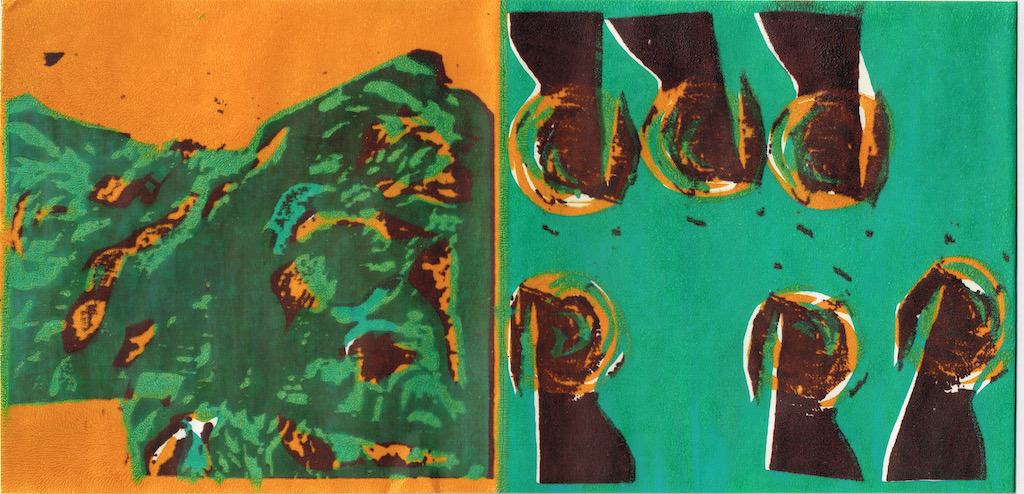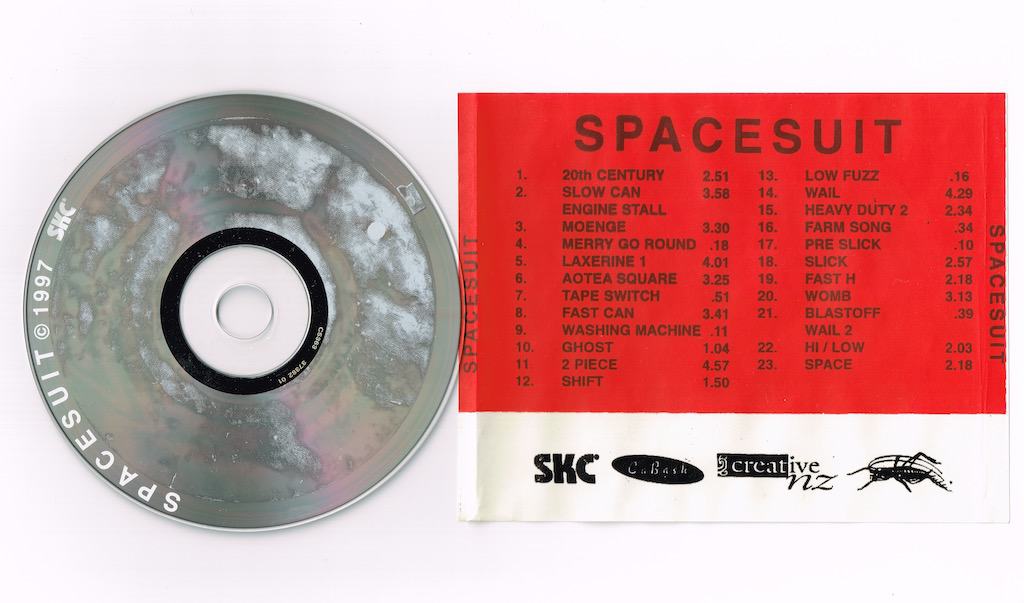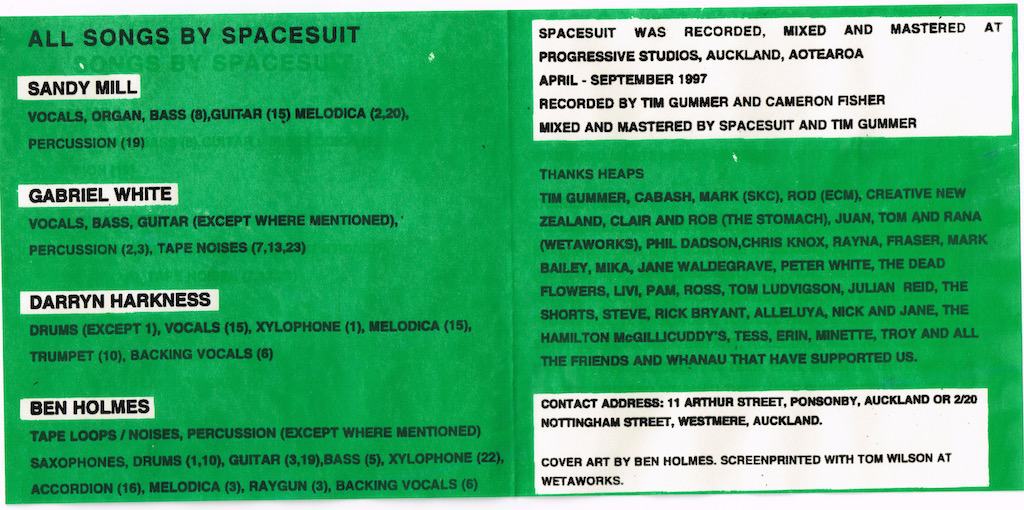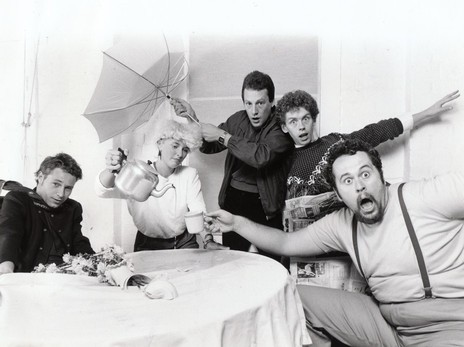In this occasional series, GARY STEEL pays tribute to lesser-known records that really rock. Today it’s Spacesuit’s turn.
 You won’t find it on the streaming service of your choice or in your local record emporium and nobody is selling a copy on Discogs. The self-titled debut (and only) album by Auckland quartet Spacesuit might as well have never existed, given its practical invisibility.
You won’t find it on the streaming service of your choice or in your local record emporium and nobody is selling a copy on Discogs. The self-titled debut (and only) album by Auckland quartet Spacesuit might as well have never existed, given its practical invisibility.
And yet, it really is a fantastic piece of work. Perhaps it’s the very incongruity of Spacesuit that makes it feel like a fiction. Apart from the burgeoning electronic scene, late ‘90s Auckland felt like a battle between the pervasive influence of generic American post-grunge rock, post-Flying Nun alt-rock and so-called dance music, which encapsulated house, techno, drum and bass and jazz/hiphop fusions. Spacesuit were completely out on their own, an oddity that refused to fit into any convenient genre. And yet, they were a sensation of inner-city Auckland, attracting wildly enthusiastic, sell-out crowds to the bars and cafes they regularly performed at in ’96 and ’97.
Would you like to support our mission to bring intelligence, insight and great writing to entertainment journalism? Help to pay for the coffee that keeps our brains working and fingers typing just for you. Witchdoctor, entertainment for grownups. Your one-off (or monthly) $5 or $10 donation will support Witchdoctor.co.nz. and help us keep producing quality content. It’s really easy to donate, just click the ‘Become a supporter’ button below.
I would walk home to my inner-city hovel after one of their gigs thinking: “That was great, but what the hell was it?” Whatever it was, their performances were exciting, because they were packed with a kind of frenetic energy. You could dance to their music because (some of it, at least) was highly rhythmic. But it wasn’t what you would call dance music. It had the edge of avant-rock but none of the boring too-cool-for-school vibe of groups like The Dead C. There was a smattering of jazz tropes but these were used for effect, and fun; they weren’t actually a jazz band. There was spontaneity in abundance and what I really loved about them was that they were innovative and risk-taking and quite bizarre but also a lot of fun.
Sadly, there was just too much talent in their ranks and it was probably inevitable that Spacesuit wouldn’t last. Darryn Harkness (drums, vocals, xylophone, melodica, trumpet) had already joined celebrated percussion group From Scratch by ’97 and ended up leading a few different acclaimed groups in the UK (including Serafin and the New Telepathics) while Sandy Mill (vocals, organ, bass, guitar, melodica, percussion) is one of NZ’s leading singers who has worked with the likes of Neil Finn and SJD and more recently, a solo career. Gabriel White (vocals, bass, guitar, percussion, tape noises) is these days a filmmaker but still makes music with his band The Floral Clocks, while Ben Holmes (tape loops, noises, percussion, saxophones, drums, guitar, bass, xylophone, accordion, melodica, raygun) leads his one-man band Oksun Ox.
In retrospect, it’s probably a small miracle that Spacesuit ever got to make a recording. Their album was recorded at Progressive Studios between April and September 1997, and “recorded by Tim Gummer and Cameron Fisher.” While the result is about as raw as a Spacesuit performance, they did a great job of catching the energy and dynamics of the group, and hearing the album this week for the first time in about 20 years I’m simply astonished at how fresh it sounds. The recording sounds gloriously uncompressed and it’s a sheer delight to hear the drums and percussion, which are really the star component of the Spacesuit sound.
 Presented with handmade screen-printed artwork (each one is unique) on compact disc only (the vinyl revival hadn’t kicked in back then), Spacesuit features 23 tracks, seven of which are fragments of less than a minute. The first half is a tour-de-force while the second half does somewhat lose steam, and would have benefited from just a little pruning.
Presented with handmade screen-printed artwork (each one is unique) on compact disc only (the vinyl revival hadn’t kicked in back then), Spacesuit features 23 tracks, seven of which are fragments of less than a minute. The first half is a tour-de-force while the second half does somewhat lose steam, and would have benefited from just a little pruning.
But still, it’s really something. “From Scratch meets Hawkwind meets John Zorn”, read my notes for the first track, ‘20th Century’, and that does give some idea of the stylistic crash-collisions going on here, without actually getting to the core of what Spacesuit was doing. There’s fast xylophone and grungy bass and clattering drums and distorted ‘megaphone-effect’ vocals that bring with it a Fall-like punk aesthetic.
On ‘Slow Can Engine Stall’, Sandy’s mad scatting gives it an almost 6 Volts feel that’s magnified by the skronking sax, but this is much more high velocity than that venerable Wellington institution; it’s more punk-inspired and smells like K’Rd with its cool riffs and exotic percussion.
‘Moenge’ shows another side to Spacesuit; one that’s inspired by the likes of Captain Beefheart’s Magic Band and (perhaps) experimental new wave groups like This Heat, with its battery of harsh percussion and one-chord mean gristly guitar.
 On ‘Laxerine 1’, however, it feels like they’re channelling the whole New York downtown jazz scene along with Sun Ra-style insanity: freaky avant-jazz-rock with cool repetitive dual sax lines and Sandy cooing away airily.
On ‘Laxerine 1’, however, it feels like they’re channelling the whole New York downtown jazz scene along with Sun Ra-style insanity: freaky avant-jazz-rock with cool repetitive dual sax lines and Sandy cooing away airily.
Later, with its almost funk groove and sax’n’drums dynamic, ‘2 Piece’ feels like it’s tuning into the very birth of rock and roll.
The only thing that (slightly) dates the album is the occasional use of lo-res samples and tape loops, but they’re always in service to the music, not simply babble-grabs. I’d forgotten about the fake ending, which after a period of silence bursts into a little ditty with the chant: “Hot cross buns, hot cross buns.”
Spacesuit’s one album, despite tapering off slightly towards the end, is an outright classic of its time and so beyond genre that it’s impossible to place. If nothing else, they made a fabulous racket that somehow, for a moment in time, ignored the unwritten rules to capitulate to normality. They were deviant in the very best way. I hope that one day this utterly brilliant moment in time gets immortalised with the reissue treatment so that history doesn’t completely forget them.











